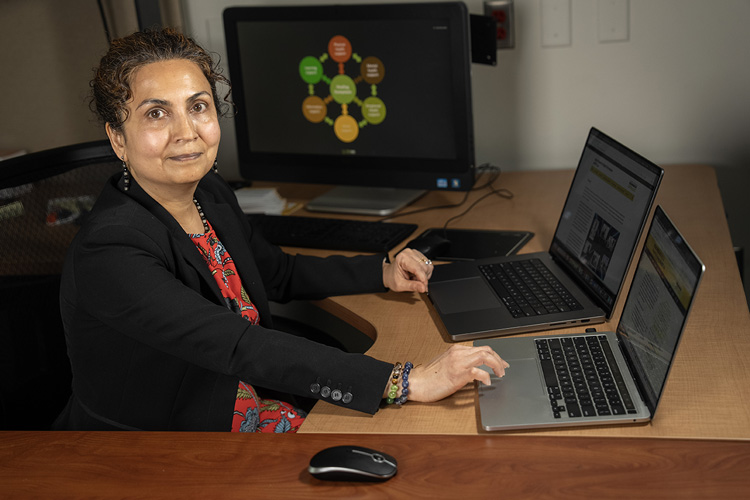Priya Nambisan, an associate professor of health care informatics at the University of Wisconsin-Milwaukee’s Zilber College of Public Health, is making significant strides in the intersection of technology and health. Her journey into health technology took a personal turn when she faced alarming symptoms leading her to the emergency room. “I called my physician, and I was sweating,” Nambisan recalled. She was experiencing intense stress while balancing her academic responsibilities and caring for her young twins.
Nambisan’s doctor initially feared she was having a heart attack, but it turned out to be an anxiety attack. Reflecting on her experience, she noted, “Like many other women, my health took a backseat.” This moment of crisis motivated her to leverage data in understanding her health better. Using tools she was familiar with, such as Excel, she began tracking various factors including stress, diet, and heart rate.
Creating a Comprehensive Health Tracking App
From her personal research, Nambisan developed the My Healing Ecosystem for Self-care & Therapeutic Integration for the Aging, known as myHESTIA. Unlike other applications that focus on single health issues, myHESTIA allows users to monitor multiple chronic conditions within one platform. This is particularly beneficial for older adults who may not be technologically adept, as they only need to learn one app to manage their health.
Nambisan emphasizes the importance of tracking health data accurately, noting that relying on memory can be misleading. “Mentally, keeping track doesn’t work. Your brain cheats, and it’s too much information to keep in your head,” she explained. Her research includes pilot studies to assess the effectiveness of the app, with findings suggesting that structured tracking can lead to better health outcomes.
One notable study, funded by the Fulbright program, investigates how adult children can use myHESTIA to remotely monitor their aging parents’ health, particularly in India where many young professionals move away for work. Another ongoing study, supported by the Bader Foundation, tests the app’s functionality with early-stage dementia patients and their caregivers.
Researching Social Media’s Impact on Youth Mental Health
In addition to her work on myHESTIA, Nambisan directs two research labs at UWM: the Social Media and Health Research & Training (SMAHRT) and Aging Research & Digital Technologies (ARDT). Recently, she and Lance Weinhardt, associate dean for research, secured a $1.3 million grant from the National Institutes of Health. Their research aims to explore how social media influences suicide rates among at-risk youth, particularly focusing on LGBTQ+ individuals who are more likely to seek help online.
Nambisan’s work in this area is crucial, as understanding the complexities surrounding suicide is challenging. “It’s a very difficult research topic due to the complexities of suicide and a lack of clarity in the causes of suicides,” she stated. The team employs artificial intelligence to analyze vast amounts of data, providing insights into how online interactions affect mental health.
Her dedication to this critical issue has led her to speak at various schools and community events, addressing the impact of suicide on families. Although discussing these topics is difficult, Nambisan remains hopeful that her research can foster positive change in mental health support for youth.
Through her innovative approach to health technology and mental health research, Priya Nambisan is not only advancing academic knowledge but also providing practical solutions that can improve the well-being of individuals across generations.
